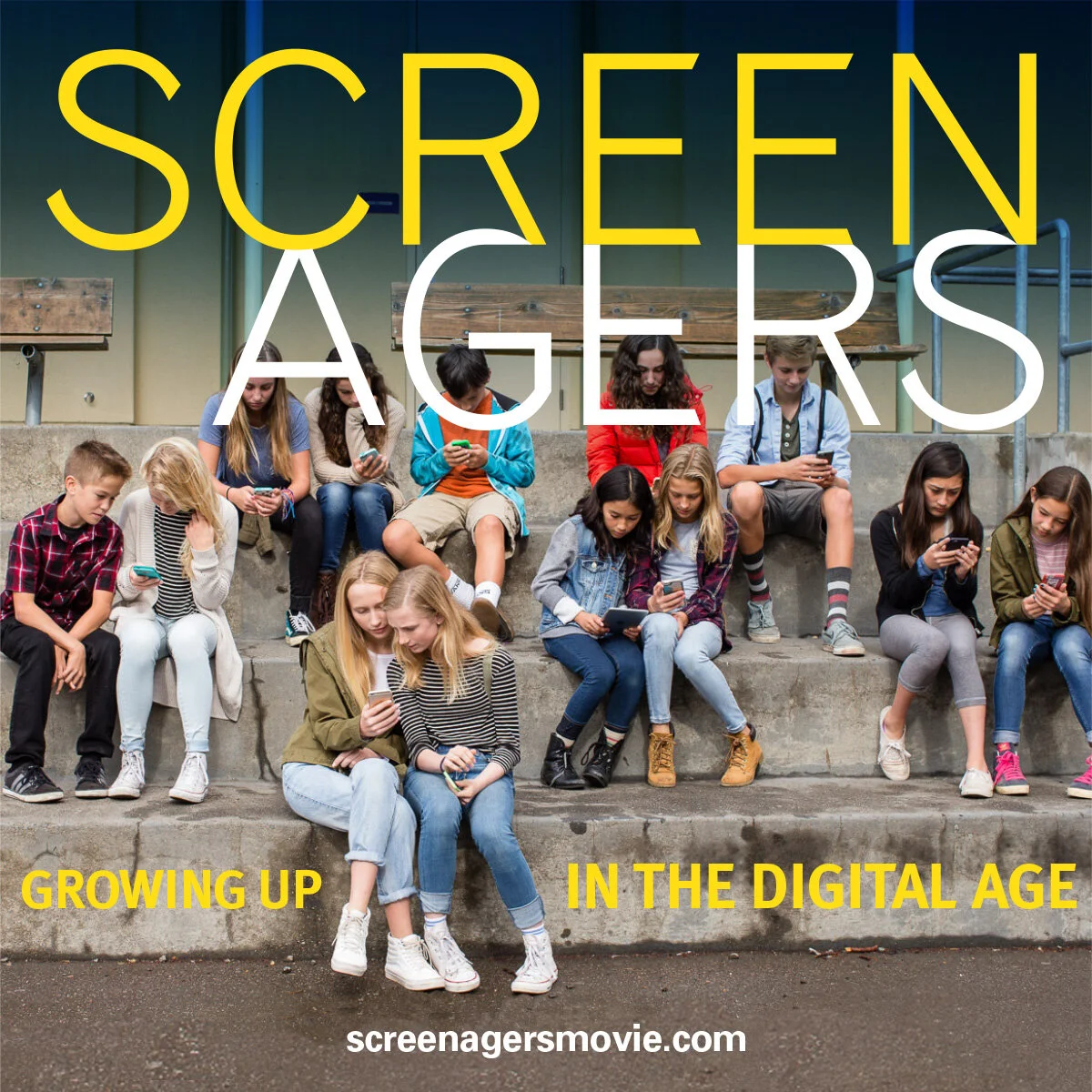SCREENAGERS EVENT & PANEL DISCUSSION
SCOTTISH RITE HOSPITAL (DALLAS)
Last Friday (9/21), doctors Pop and Kinney were invited to speak at a showing of Screenagers, a documentary that examines the impact of the digital age and screen time on children and teens. The film and panel discussion was a sponsored education event from Dallas CBT, in an effort to train the community and help provide useful, evidence based information to mental health professionals, as well as parents. The panel was attended by more than fifty local clinicians and parents. In case you were not able to attend, here are most important points that were discussed and top 10 tips for addressing screen time.
Teens need time to be bored: Avoid over or under scheduling events. This might be difficult to achieve at first, but teens will learn to utilize their free time with more productive means. While it may initially seem helpful to watch a funny video or text someone, screen time is often a distraction and a way to avoid completing certain tasks, which could lead to an increase in worry and even anxiety in the long run.
Modeling is key: Operating and behaving in the same way we expect teens to behave. This means having the same limits on screen time, putting our devices away at night, not using our phone as we get ready for the day, and stepping away from screens when interacting with family members.
Tolerate frustration: Managing frustration and boredom are keys towards learning how to deal with difficult situations. It is important that as parents, we allow for this process to occur, and in return, manage our own frustrations that might develop as a result of the teen’s struggle. Empowering teens through actionable strategies they can practice, sends the message that they can deal with the frustration and the have some control.
Don’t be scared of anger: Change is difficult, and teens may initially respond in a negative way towards limit setting. It is important to recognize this and understand that with consistency and repetition, things will improve. Employ your own coping skills and emotional management strategies in the process.
Each teen is different: Developing a customized plan, establishing individual goals and consequences is a valuable process for the entire family. Set aside time with teens to discuss any new plan so they are not surprised. Obtain their input, and allow for compromise to occur. This show that you value their opinion and ensures they feel heard.
Avoid the extreme ends of the spectrum: Taking a privilege completely away and not allowing for a path for teens to earn back their time will be counterproductive. Instead, set clear expectations, boundaries, and establish a concrete plan for developing appropriate behaviors.
Don’t use screen time as the only reward: Take time to develop different reward systems, but try to stay away from adding more screen time for positive behaviors. Instead, focus on teens’ additional interests and provide praise when they follow through with the established plan and seek out other, more productive ways to pass their time.
Build in structure: Develop a routine that takes into account time for screens/devices, while also allowing for downtime. Maintaining a consistent daily schedule (at least for school days) is a good way to develop positive habits. Generally, a balance of mastery tasks (skills based, chores, work/school related) and pleasure tasks, provide a natural way to increase motivation. Conversely, having access to a rewarding activity such as screen time before completing a necessary task will likely lead to procrastination and avoidance.
Watch screens together and discuss them when possible: Co-watching is a good way to keep the content teens have access to in-check. This can also build trust in a gradual fashion, and may reduce demands by parents to check devices in suspicion of negative activities. In addition, co-watching leads to positive child-parent interactions as a result of active discussion and shared activities.
Screens aren’t all bad: These days, most teens need a certain amount screen time to even complete their school work. This age group has also developed different social habits and means of communication. Devices are a way for them to feel connected to their peers and the outside world. This is normal, and only becomes problematic when behaviors are excessive or they begin to interfere with social interactions, the family, and/or their school work. For a guide on the recommended screen time based on age, click on the American Academy of Pediatrics Media Use Recommendations link.

